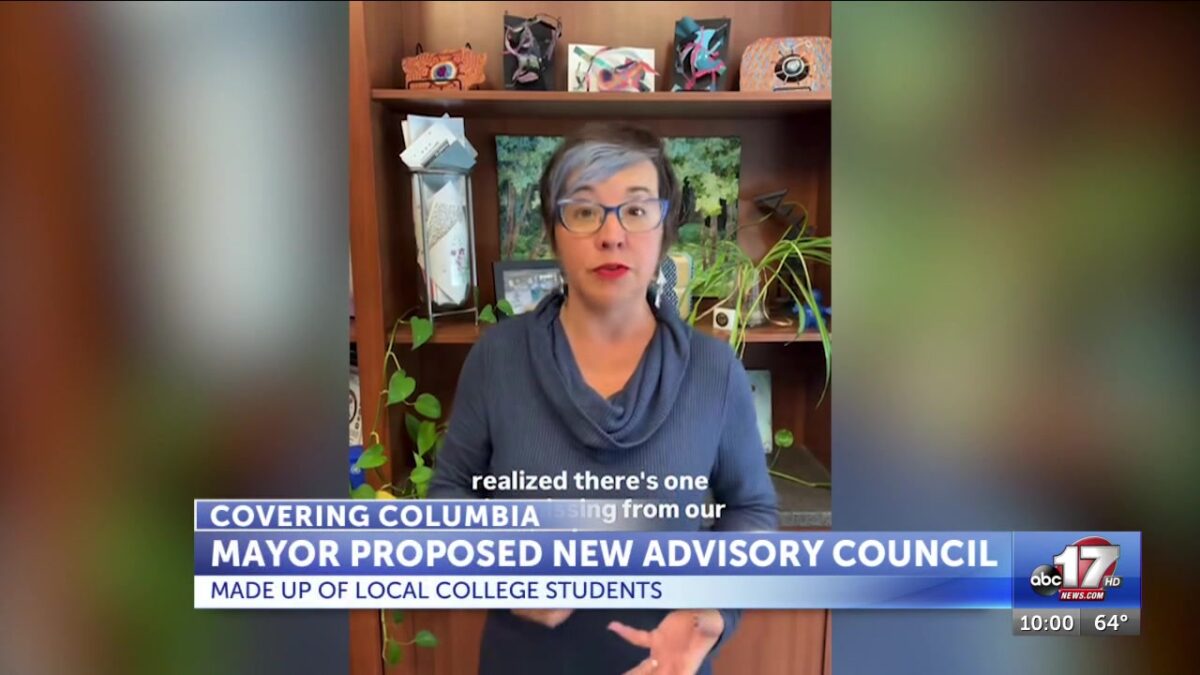Columbia mayor proposes student advisory council amid downtown safety concerns

Mitchell Kaminski
COLUMBIA, Mo. (KMIZ)
After walking back a proposal for a downtown task force, the City of Columbia is now considering forming a new advisory council made up of local college students.
The original task force proposal came at the request of University of Missouri System President Mun Choi, following the Sept. 27 shooting death of Stephens College student Aiyanna Williams in downtown Columbia.
However, during an interview with ABC 17 News on Tuesday, Columbia Mayor Barbra Buffaloe said that after speaking with the police, members of the city council, and other downtown stakeholders, the city decided to continue using its existing boards and commissions to address downtown safety concerns.
“I think the city’s initial response was very tepid and not a strong response. They pretty much just let Dr. Choi set the tone for everything,” Ken Rice, an executive for Pickleman’s who ran for the Ward 2 council seat this past August, said. “I was actually glad that the mayor, after some thought and consultation, did not form another task force. We form a lot of task forces. One of the things that I ran on is that there’s a lot of talk and task forces like to talk. And we had one in 2014. It’s a 30-page report, and it had some really actionable items. But here’s the problem. Just like many of the recommendations or consultants or task forces that the city convenes, no action was taken.”
Instead, Buffaloe is looking to create a Collegiate Advisory Council to the mayor, an idea that she got from a similar program in Columbia, South Carolina.
The group would include student representatives from the University of Missouri, Stephens College, Columbia College and Moberly Area Community College to provide input on safety, transportation, housing, and workforce opportunities.
Buffaloe said in a Friday social media post that she will be working with university administrators and their student body governments to help select members for the council.
“I think that is a good idea. I feel like representation, if that is included, which this very much seems like, would be a good contribution to just what is going on with people, just in general, not just limited to the University of Missouri, but to the other colleges as well,” Yule Yoon, a freshman at the University of Missouri, said.
When asked about their thoughts on the proposal, a University of Missouri spokesman told ABC 17 News in an email:
“President Choi’s focus will be on implementing the 11 action items with city, county, state, federal and business leaders to improve public safety and the homeless crime problems.”
This comes after Columbia and University of Missouri leaders announced new measures on Oct. 1, aimed at improving downtown safety after the homecoming weekend shooting.
The plan calls for more police patrols, including additional Boone County deputies and Missouri state troopers on weekend shifts. The Columbia Police Department and MU Police will continue increased foot patrols downtown and seek to expand staffing.
City and university officials also plan to review local ordinances, lighting and crowd-control measures; audit prosecution of downtown weapons and assault cases; and meet with state and federal officials about additional safety resources.
“I have been living in Columbia for quite some time now, a few years, and I think that even with the addition of extra enforcement of police, I still feel safe,” Yoon said. “I do feel like having more police does give a social, psychological effect on people, where people do tend to feel a little bit more nervous.”
Choi also held a walk of downtown Columbia with local business owners on Oct. 5, providing leaders with an eyewitness account of potential public safety issues in the area.
However, local business leader Ken Rice, an executive for Pickleman’s told ABC 17 News that the walk wasn’t open to everyone.
“I made the assumption, perhaps wrongly so that he wanted any business leader and myself having a business that’s right on East Broadway that’s open till 2 in the morning with friends and family that work in that site. I thought, ‘Hey, well I’d be the right person to join. So initially I was just going to join his walk, and then it became that his walk was not necessarily for everybody,” Rice said.
Instead, Rice held his own walk downtown with four others.
“In the past, I would see maybe four CPD cruisers patrolling the streets during the late-night hours,” Rice said. “At any given point where we were, there were four police cruisers in sight. I saw a number of sheriff deputies. I saw Mizzou police. I saw state troopers, and for the first time, I saw the CPD officers, there was about four of them walking up and down on the street on Broadway.”
Before releasing the new enforcement rules, Choi sent a letter to county and city leaders that crimes ranging from homeless trespassers on campus to gun violence in downtown Columbia have created a dangerous environment for citizens and students.
While Rice credited Choi with helping add the increased enforcement, he added that some of the college students may be adding to the problems.
“A lot of the problems that happened, at least that at times, is the college students that, you know, get quite inebriated and, they create problems from fighting to harassment and stuff, different things like that. So I think there’s a number of different issues,” Rice explained. “I think there’s a number of things we have to consider. We have to be careful of one group being targeted over another.”
ABC 17 News reached out to Stephens College, Columbia College and Moberly Area Community College.